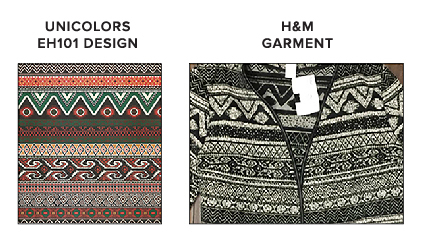Client Alert
What You Don’t “Actually, Subjectively” Know Can’t Hurt You: SCOTUS Clarifies What It Takes to Invalidate a Copyright Registration Under Section 411(b) of the Copyright Act
Client Alert
What You Don’t “Actually, Subjectively” Know Can’t Hurt You: SCOTUS Clarifies What It Takes to Invalidate a Copyright Registration Under Section 411(b) of the Copyright Act
February 28, 2022
Registration of a copyright is a prerequisite for a lawsuit. The Copyright Office generally takes applications at face value, and once the certificate issues, the pre-suit registration requirement is met—even if information on the certificate is inaccurate. The only exception is when the applicant included the information “with knowledge” that it was inaccurate, and the inaccuracy, if known, would have caused the Copyright Office to refuse registration. Section 411(b) establishes a two-step process: when a challenger alleges that inaccurate information was included “with knowledge,” the court must ask the Copyright Office whether it would have refused registration had it known of the inaccuracy. 17 U.S.C. § 411(b).
But what does “knowledge” mean? In Unicolors v. H&M Hennes & Mauritz, decided on Thursday, the Supreme Court provides the answer: the applicant must have “actual, subjective” knowledge that it is providing inaccurate information. The standard applies with equal force to mistakes of law and of fact, so an inadvertent mistake of law—even an unreasonable one—will not invalidate an issued registration certificate.
Unicolors, Inc. creates and markets fabric designs and is also a prolific copyright plaintiff. In 2011, it registered 31 fabric designs under a special rule that permits registration of multiple works with a single application, as long as all the works were previously “published” and “included in a single unit of publication.” Four years later, it sued clothing retailer H&M Hennes & Mauritz (H&M) for infringing one of those designs, specifically one named EH101. A jury found willful infringement.

H&M asked the trial court to overturn the judgment, arguing that Unicolors’ registration was invalid because the 31 registered designs were not part of a “single unit of publication.” While most had been offered for sale to the general public at the same time, nine had been sold separately to individual customers. The court denied H&M’s motion, holding that H&M would have had to show that Unicolors intended to defraud the Copyright Office.
The Ninth Circuit reversed. It held that the plain meaning of “single unit of publication” was that all the works must have been “first published as a singular, bundled unit.” The question, said the panel, was not whether Unicolors knew its application failed the legal single-unit registration requirement, but “merely whether Unicolors knew that certain designs included in the registration were … published separately to exclusive customers.” The Ninth Circuit concluded that the district court should have sought advice from the Copyright Office and then determined whether the registration was invalid.
Unicolors appealed, asking the Supreme Court to decide whether the trial court was required to query the Copyright Office in the absence of “indicia of fraud” in the application. The Court answered a slightly different question: what kind of “knowledge” does it take to potentially invalidate a copyright registration under Section 411(b)? In a short opinion by Justice Breyer, the Court held that the statute requires “actual, subjective awareness of both the facts and the law.” Ignorance of the law, in other words, is an excuse. Still, courts don’t have to take an applicant’s word for its state of mind: willful blindness can be the equivalent of actual knowledge, and circumstantial evidence (including the significance of the legal error, the complexity of the rule, and the applicant’s experience with copyright law) can show that an applicant was actually aware of, or willfully blind to, the law.
In the case before the Court, Unicolors claimed to have been unaware that its designs did not meet the legal “single unit of publication” standard. The Court reasoned that since it was only the legal requirement that rendered the information in the application inaccurate, taking Unicolors at its word meant it could not have acted “with [actual] knowledge” of inaccuracy. The Court vacated the Ninth Circuit’s judgment and remanded for further proceedings.
Justice Breyer delivered the Court’s opinion. Justice Thomas filed a dissenting opinion, with Justice Alito joining and Justice Gorsuch joining in part.
District Court Case No. 2:16-cv-02322-AB-SK (C.D. Cal.)
Ninth Circuit Opinion: 959 F.3d 1194 (2020)



